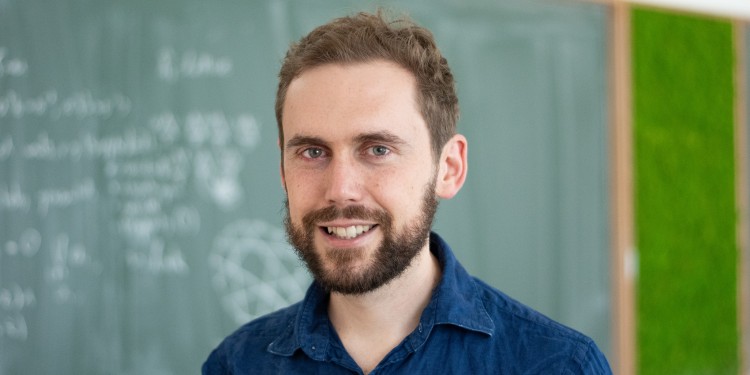
Giles Gardam receives Emmy Noether funding
Junior researcher Dr. Giles Gardam convinced the German Research Foundation (DFG) with his project: The DFG is providing funding from the Emmy Noether Programme of just over one million euros for the Münster mathematician. This means that Gardam can build up his own research group at the Mathematical Institute in the coming six years. The aim of the Emmy Noether Programme is to offer outstanding junior researchers scientific independence and qualify them for a university professorship.
Giles Gardam has been a postdoc since 2019, working in the Topology Group in Münster and carrying out fundamental research in mathematics. Last year, Australian-born Gardam caused a great stir in international circles when he succeeded in disproving one of the three so-called Kaplansky conjectures. These are three mathematical problems – unsolved for some time – relating to group rings of torsion-free groups.
This is the topic into which the 31-year-old wants to research further – with his own working group and under the title of “Satisfiability and group rings”. “My disproof of the Kaplansky unit conjecture,” says Gardam, “has thrown up new mathematical questions which I would like to explore. Together with my team, I’ll be working on developing our understanding of the unit conjecture, its counterexamples, and group properties that are connected to it. But we’ll also be taking a close look at the other conjectures,” he says.He considers his inclusion in the Emmy Noether Programme to be a great honour and a great opportunity. “I’m looking forward to taking up a leadership role in my research group,” he says. “I’ve already collaborated with other mathematicians on multiple projects, but not as a mentor or supervisor – so it will definitely be a new experience for me.”
Personal details:
Giles Gardam was born in Australia in 1990, specialises in geometric group theory, and has been working in the Topology Group at Münster since 2019. He contributes to the Cluster of Excellence Mathematics Münster and to the Collaborative Research Centre 1442 “Geometry: Deformations and Rigidity”. He graduated from the University of Sydney and took his PhD at Oxford. For a year after that he was a postdoc at the Technion in Israel before he moved to Bonn for a trimester programme at the Hausdorff Research Institute for Mathematics (HIM).
